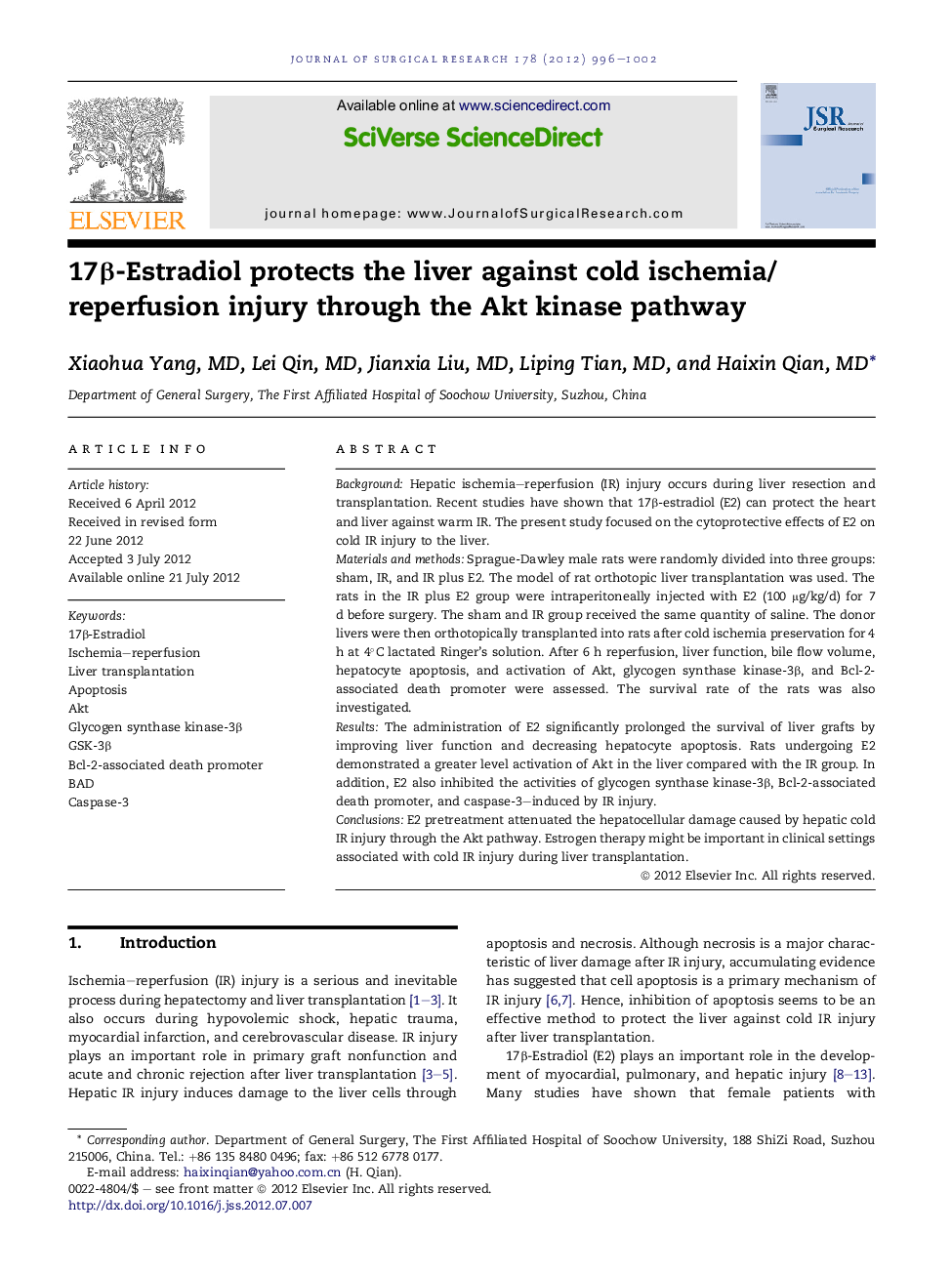| Article ID | Journal | Published Year | Pages | File Type |
|---|---|---|---|---|
| 6254603 | Journal of Surgical Research | 2012 | 7 Pages |
BackgroundHepatic ischemia-reperfusion (IR) injury occurs during liver resection and transplantation. Recent studies have shown that 17β-estradiol (E2) can protect the heart and liver against warm IR. The present study focused on the cytoprotective effects of E2 on cold IR injury to the liver.Materials and methodsSprague-Dawley male rats were randomly divided into three groups: sham, IR, and IR plus E2. The model of rat orthotopic liver transplantation was used. The rats in the IR plus E2 group were intraperitoneally injected with E2 (100 μg/kg/d) for 7 d before surgery. The sham and IR group received the same quantity of saline. The donor livers were then orthotopically transplanted into rats after cold ischemia preservation for 4 h at 4°C lactated Ringer's solution. After 6 h reperfusion, liver function, bile flow volume, hepatocyte apoptosis, and activation of Akt, glycogen synthase kinase-3β, and Bcl-2-associated death promoter were assessed. The survival rate of the rats was also investigated.ResultsThe administration of E2 significantly prolonged the survival of liver grafts by improving liver function and decreasing hepatocyte apoptosis. Rats undergoing E2 demonstrated a greater level activation of Akt in the liver compared with the IR group. In addition, E2 also inhibited the activities of glycogen synthase kinase-3β, Bcl-2-associated death promoter, and caspase-3-induced by IR injury.ConclusionsE2 pretreatment attenuated the hepatocellular damage caused by hepatic cold IR injury through the Akt pathway. Estrogen therapy might be important in clinical settings associated with cold IR injury during liver transplantation.
